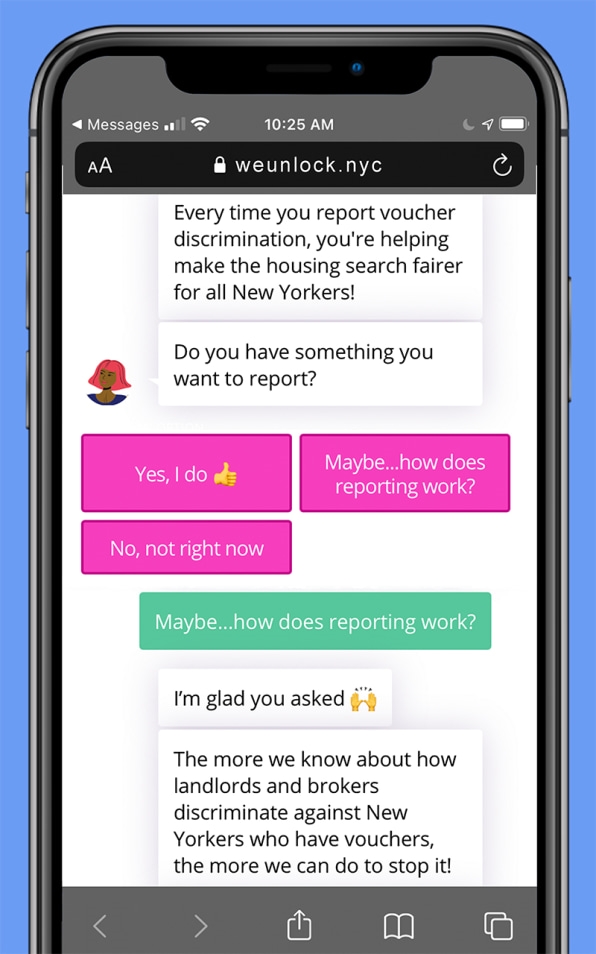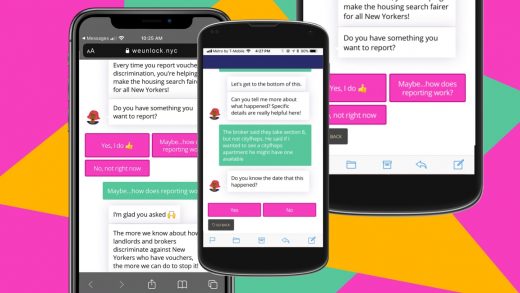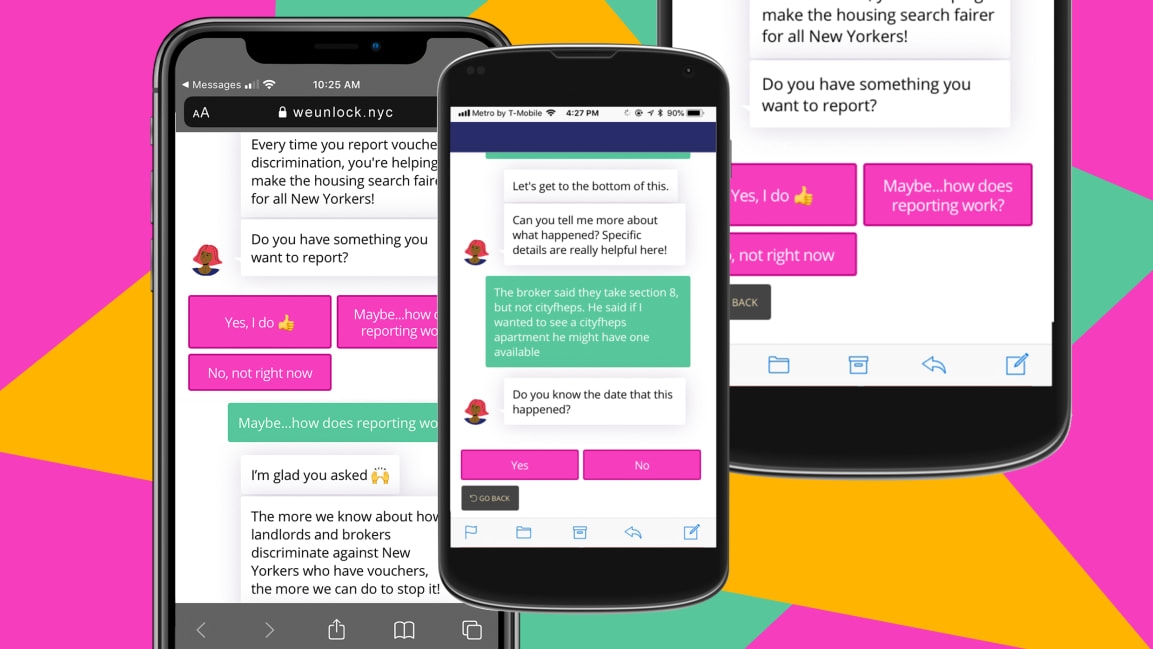This chatbot helps New Yorkers report housing discrimination
To combat that discrimination, social justice startup Unlock NYC has launched a chatbot to help New Yorkers report these potential infractions. On its website, prospective tenants who were illegally turned down for an apartment can click “report” and prompts will guide them through the process, allowing users to select details such as “someone told me I didn’t meet the income requirements for the unit” or “I got ghosted after mentioning my vouchers,” and explaining what the benefits of reporting the interaction could be.

Manon Vergerio, one of three founding members of Unlock NYC, who met at the social tech incubator Blue Ridge Labs, says every New Yorker with a rental voucher that she spoke to for research had faced discrimination. That discrimination varied from upfront lies that the landlord doesn’t accept vouchers (per state law, only one- or two-family homes occupied by the owner, room rentals in all same-sex properties, and housing for seniors are exempt) to evasive tactics such as brokers hanging up on or refusing to call back people who mentioned their vouchers.
City officials say people who experience this should call 311 for the Human Rights Department—but that process often requires hard evidence people may not have. (Unlock NYC is also working on a call recording tool, so people can get that evidence more easily.) New Yorkers who aren’t tech-savvy or don’t know their rights might also not know how to record or report discrimination. “We really thought there could be an easier way for people to be able to get justice as they face discrimination,” Vergerio says. “Especially because people who have vouchers tend to be low-income New Yorkers or folks who are exiting the shelter system, so this rampant discrimination is shutting out thousands of New Yorkers from housing units that they should have access to.”
The chatbot will direct reports to the NYC Commission on Human Rights, but it also reviews the report, helps the person prepare a stronger report so that the city can take action, follows up with people, and collects data about how often and where this is happening around the city. Those who use the chatbot don’t have to pursue legal action; if they don’t have strong evidence or aren’t comfortable sharing their details, they can leave an anonymous tip, which the site then aggregates. “There’s so little public data about it, it’s really hard to hold bad actors accountable,” Vergerio says, “and to make the case for policies that could really transform the system.” That data will eventually be mapped to show which neighborhoods have the highest rates of discrimination and potentially combined with ownership data to show any patterns of which landlords and agencies are being more discriminatory.
Unlock NYC worked with housing organizations and community groups that have been doing this work for years, such as Neighbors Together, a community center in Brooklyn that has long held in-person workshops to help people facing source-of-income discrimination. Observations from those workshops helped inform that chatbot, but unfortunately the pandemic put them on hold. “Having a tool that’s directly accessible digitally that people can just have on their phone has become even more critical,” Vergerio says, “because you can’t have in-person spaces where people can come seek help.”
(19)



